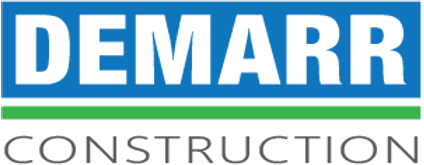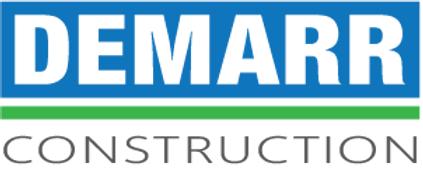Residential sewer line installation is a crucial aspect of any home construction or renovation project. Without a properly installed sewer line, you could be facing costly repairs and potential health hazards down the line. We’ll cover everything you need to know about residential sewer line installation, including the importance of proper planning and permits, choosing the right materials, the installation process, and more.
The Importance of Proper Planning and Permits
Navigating the initial stages of residential sewer line installation demands meticulous preparation and adherence to legal requirements. The process begins long before any physical work is undertaken, highlighting the necessity of acquiring all pertinent permits from local regulatory bodies. These permissions serve a dual purpose: they validate that the proposed installation aligns with established building codes and safety standards, and they safeguard homeowners from potential legal complications that could arise from non-compliance.
The act of obtaining permits is more than a bureaucratic formality; it’s a critical step in the project’s lifecycle that facilitates a thorough review of the installation plan by municipal experts. This scrutiny ensures that the design of the sewer line does not interfere with existing infrastructure and meets environmental protection criteria, thereby mitigating the risk of future complications that could impact public health or the environment.
Moreover, this stage offers an opportunity to identify and rectify any oversights or errors in the project’s planning phase. It prompts homeowners and contractors to consider the project’s impact comprehensively, including how it might affect neighboring properties and local ecosystems. The insights gained through this process can lead to adjustments in the project scope or methodology, ultimately resulting in a more resilient and sustainable installation.
In essence, the emphasis on proper planning and securing the right permits underscores the complexity and importance of residential sewer line installations. It lays the groundwork for a successful project that complies with legal standards, protects property values, and ensures the health and safety of communities.
Choosing the Right Materials for Your Sewer Lines
Selecting the optimal materials for your sewer line installation is a critical decision with lasting implications for the functionality and maintenance of your home’s wastewater disposal system. The choice of material hinges on a balance of durability, cost-effectiveness, and compatibility with your home’s existing infrastructure. Among the most commonly utilized materials are PVC (Polyvinyl Chloride), ABS (Acrylonitrile Butadiene Styrene), and traditional cast iron.
PVC pipes are lauded for their lightweight nature, resistance to corrosion, and ease of installation, making them a favored choice among homeowners and contractors alike. They are particularly suited for residential settings due to their long lifespan and minimal maintenance requirements. ABS pipes share many of the same advantages as PVC, including resistance to physical impacts and ease of handling. However, they are distinguished by their superior performance in colder climates, where temperatures can cause materials to contract and expand.
Cast iron, on the other hand, stands as the hallmark of durability. Its robustness and ability to dampen the noise of flowing wastewater make it a premium option, albeit at a higher cost and with more challenging installation requirements compared to its plastic counterparts.
Engaging with a knowledgeable contractor is indispensable in navigating these choices. They can provide tailored advice based on the specific demands of your project, such as soil conditions, the proximity of tree roots, and local code requirements. This collaboration ensures the selection of sewer line materials that not only meet your immediate needs but also provide peace of mind through years of reliable service.
The Installation Process: What to Expect
Embarking on a residential sewer line installation project entails a series of carefully orchestrated steps to ensure the longevity and efficiency of your wastewater management system. Initially, the site must be accurately assessed to determine the optimal route and depth for the new sewer line. This preliminary assessment takes into consideration various factors, such as the location of utility lines, to avoid any potential conflicts or disruptions.
Following this, the excavation phase begins, which involves digging a trench to the specified depth for the new sewer line. This phase must be approached with precision to prevent unnecessary damage to the surrounding area. Excavation depth and method are influenced by factors such as the type of soil, the presence of groundwater, and the proximity of other underground utilities.
Once the trench is prepared, the installation of the chosen sewer pipe material commences. During this stage, the pipes must be laid correctly, with attention to slope and alignment, to facilitate proper wastewater flow and prevent blockages. Connections are carefully made to ensure a seamless and leak-proof system.
After the new sewer lines are in place, a thorough inspection is conducted to verify that the installation meets all regulatory standards and functions as intended. Upon passing inspection, the trench is backfilled, compacting the soil to restore the site to its original condition as closely as possible.
This step-by-step overview highlights the meticulous attention to detail required throughout the installation process, emphasizing the importance of professional expertise to navigate the complexities of residential sewer line installation.
DeMarr Construction: Your Local Experts for Residential Sewer Line Installation
Embarking on a sewer line installation is not just about enhancing your property’s infrastructure; it’s about securing the health and safety of your home for years to come. Every step, from selecting materials to the meticulous installation process, plays a vital role in ensuring a successful project outcome. Recognizing the complexity of this undertaking, it’s crucial to partner with a team that brings expertise and commitment to the table.
That’s where DeMarr Construction comes in. With years of experience and a dedication to quality, our team ensures your sewer line installation is executed flawlessly, adhering to all regulations and requirements. Trust us to deliver a hassle-free process from planning to completion, safeguarding your home’s integrity and your peace of mind. Choose DeMarr Construction for an investment in your home’s future.

